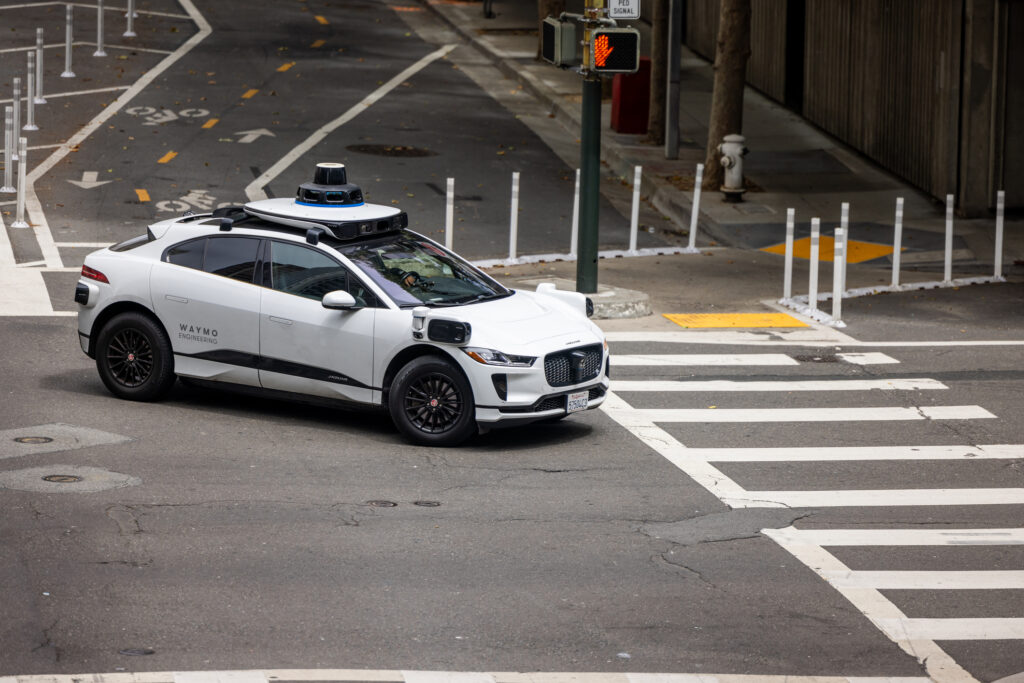Even without a human driver, autonomous vehicles must follow the same rules of the road as everyone else. If a Waymo car fails to stop in time, makes an unsafe turn, or misjudges a situation, it may still be considered negligent under Georgia law.
But liability in these cases often goes beyond what happened in the moment. Here’s who may be held responsible:
- Autonomous Vehicle Operators (Waymo, Zoox, Tesla Full Self Driving)
If the crash results from a failure in the self-driving system—whether in the way it interprets traffic conditions, responds to other vehicles, or executes driving decisions—Waymo or Zoox, as the operating company, is typically the first and most direct party responsible.
One growing issue in these cases is software recalls.
A software recall occurs when the company identifies a bug or flaw in the vehicle’s driving software—something that could cause a dangerous error, like misjudging the distance to another car or failing to stop for a pedestrian. These recalls are often fixed with an over-the-air software update.
However, there are serious concerns about what happens before the update is installed—or if the update doesn’t actually correct the problem. If a crash happens during that window, the company may be liable for allowing unsafe software to control the vehicle. - Autonomous Vehicle Manufacturers
If the crash is caused by a mechanical defect—such as brake failure, a faulty steering mechanism, or any physical problem with the car itself—the automaker can be held liable under traditional product liability laws. - Software and Sensor Providers
Waymo’s technology depends on a network of cameras, lidar, radar, and sophisticated software. These systems are often built and maintained by third-party vendors. If a sensor failed to detect a hazard or if the AI system misinterpreted traffic signals, those suppliers may also be partially responsible. - Other Negligent Drivers
Not all accidents involving a self-driving vehicle are caused by the technology. If another driver on the road speeds, runs a red light, or drives impaired, that driver may still be at fault under standard negligence principles.
Waymo’s Stalled Vehicles in Atlanta
Since launching in late June, Waymo has faced public scrutiny over videos showing its vehicles stopped in unexpected locations around Atlanta—including a clip of one stalled in the middle of a parking lot.
Waymo has responded by stating that these stops may be due to unseen factors, such as unclear traffic signals or obstacles. In some cases, the vehicle may pause to consult with the company’s remote fleet support team before proceeding.
While Waymo characterizes these incidents as rare, they highlight a broader concern: How the vehicle responds in real-time to uncertainty—and whether those responses create risk for riders and others on the road.
Why This Matters in Atlanta
Atlanta’s traffic is unpredictable, congested, and constantly in flux—making it a challenging environment for any vehicle, especially one operating without a human driver. As companies like Waymo expand across Georgia, accidents involving autonomous technology are no longer hypothetical—they’re inevitable.
And with more vehicles on the road featuring self-driving systems—whether fully autonomous or partially driver-assisted—these cases are only going to become more common. That makes it critical to identify the responsible company early and to act within the statutory period to preserve your legal rights.
Holding the right party accountable—whether it’s the operator, the manufacturer, or the software provider—requires timely action and a clear understanding of how this technology works and how it fails.
Autonomous Vehicle Litigation and The Cooper Firm
Autonomous vehicle crashes raise complex legal and technical issues that traditional car accident cases often don’t. Understanding how these vehicles operate—and how they fail—requires working with experts who are familiar with the technologies behind self-driving systems, software recalls, and sensor decision-making.
At The Cooper Firm, we’re already working in this emerging area. We have the legal and technical resources to evaluate crashes involving autonomous vehicles and to identify when these systems fall short of what the law requires. If you’ve been involved in an accident with a Waymo, Zoox, or other self-driving car, we’re here to help you understand what happened—and who’s responsible.
